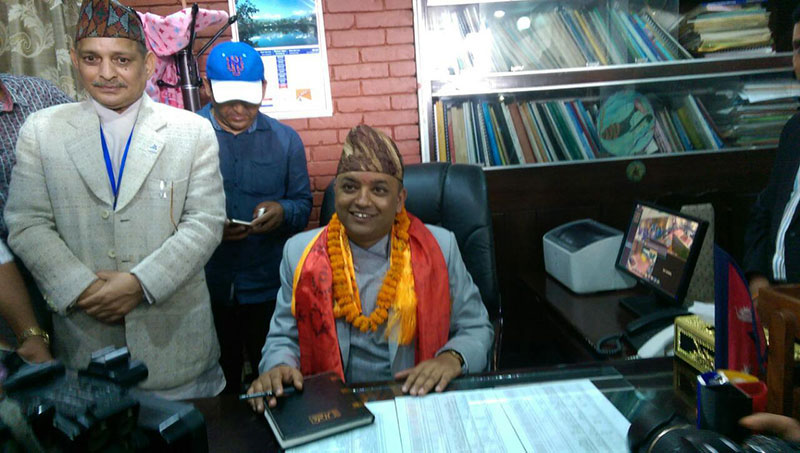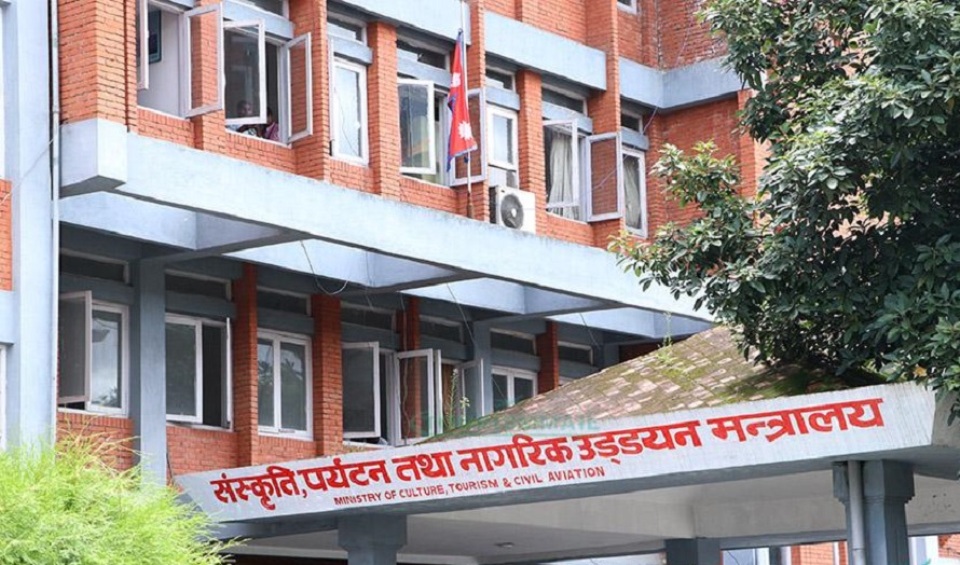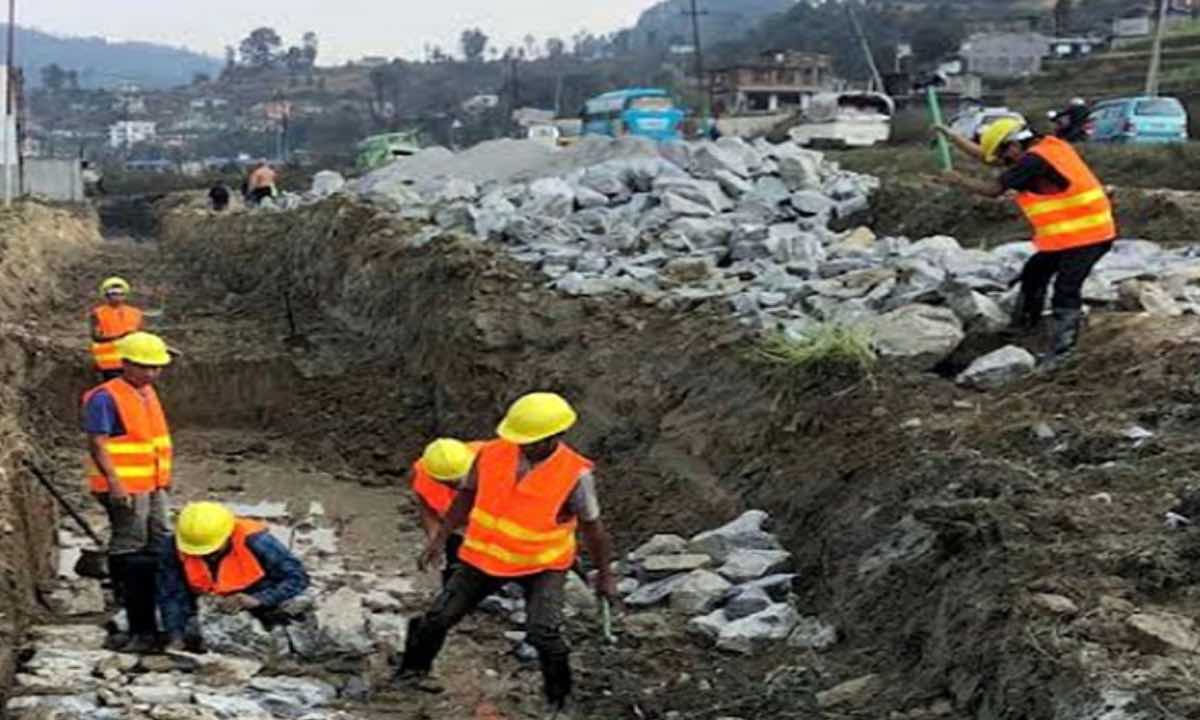
OR

He will be judged on the basis of whether he, as health minister, will be able to address the key issues raised by Dr Govinda KC
These are going to be difficult times for Nepali Congress leader Gagan Thapa, for he is expected (and he has also promised) to do what others haven’t. There is a disparity between what he can do realistically and what he will be required to do. When he was appointed Health Minister on Friday, most youths erupted in jubilation. The congratulatory messages showered on him do not only sing his praise but also warn against becoming no different to other politicians. He has been called ‘the last beacon of hope’ and his first stint his ‘last chance.’
Such expectations from an untested leader can be dangerous because great expectations can fast turn into delusions. However, both expectations and warnings have their basis in Gagan’s political rise.
Gagan Thapa first caught public attention when around 2003 the news of his party president removing him from General Secretary of Nepal Student Union broke. This “unceremonious” removal projected him as the victim.
Gagan soon built the image of a rebel. He openly opposed the opaque and dictatorial decision-making style of party president Girija Prasad Koirala, at a time no Congress leader dared to speak up in front of GPK. While GPK’s Congress was still adamant on constitutional monarchy, Gagan demanded a republic, the audacity that in 2005 landed him in jail on the charge of sedition. It was during the 2006 people’s movement that people saw him for what he was: a courageous youth leader and a leader who spoke people’s mind. This gave him international recognition as well.
After the abolition of monarchy, he spoke on behalf of youths. He demanded jobs for them and raised issues of transparency and accountability in politics. He presented himself as a bold, feisty, fearless and vocal leader that everyone liked.
Some say Gagan is a media construct. Others believe he really possesses qualities of a leader that others solely lack. He is a great orator, and also updated and conversant in English. I have met him twice during interviews for this newspaper. When I first introduced myself, he spoke of the commentaries I had written on Nepali Congress. Here is a leader who follows English newspapers and cares about what people say about his party, I thought.
Gagan responds to every question with sound logic backed with evidence and facts. He can give the impression of being informed and well-read.
However hard the journalists pester him with questions, he responds with convincing answers. He does not defend the party when it is wrong. He admits mistakes and promises to correct them. This is the Gagan Thapa that people know.
But Gagan won’t have the leverage to fall back on his past now. Everything he says and does will be examined against the promises and commitments he has made so far. To cut to the chase, Gagan will be judged on the basis of whether he, as health minister, will be able to address key issues raised by Dr Govinda KC—which are broadly about making health service affordable for the poor, and freeing it from the clutches of the medical mafia. If he cannot take concrete steps for medical education and health sector reforms, whatever else he might do will be dismissed as populist stunts. There is public pressure on him to heed Dr KC, but doing so could cost him his position. Here is how.
Nepal’s public health sector is in a terrible mess as top politicians have never bothered about it. They choose to fly to expensive hospitals abroad for minor ailments, draining billions from state coffers. He can table a proposal to make laws to make it mandatory for VVIPs to receive treatment from public hospitals if the state is to foot their bill. He can introduce a provision for the so-called VVIPs to go abroad only if treatment is absolutely impossible in Nepal. Such a step could go a long way in reviving people’s faith in public hospitals.
A recent Republica report has revealed how even the royalties used to prefer public hospitals like Bir and Teaching during Panchayat days. If we can make top politicians and bureaucrats go to public hospitals in the country, it will make doctors more accountable and help improve medical infrastructures, the benefits of which will trickle down to the poor.
But reforms in medical education will be vehemently resisted by the opposition and his own party (Congress leaders also have huge investment in Nepal’s private medical colleges). Nepal’s health sector will not improve unless public health institutes are developed and brought at par with their private counterparts in terms of quality. The medical sector has been a mess since his own party submitted it to profit sector back in the 90s. Reform won’t be possible unless this misguided course is corrected.
The biggest test for Gagan Thapa will be if/when he pushes impeachment motion against CIAA chief Lokman Singh Karki—one of the major demands of Dr KC. He has moral obligation to do so for he was the one who had filed the proposal to this effect in the parliament last month. But if he pushes this issue further it will drag not only his own leaders but also India into controversy.
It would be worthwhile to recall the circumstances under which Karki was appointed CIAA chief in 2013. Journalist Kanak Mani Dixit has written about it in a great length (Setopati, June 17, 2016). It was believed then (and even now) that Karki was appointed CIAA head under the pressure of India’s intelligence agents (read: India). It had also come to the fore in 2013 that Congress leader Krishna Prasad Sitaula (now Gagan’s patron) had exerted pressure on then president Ram Baran Yadav to approve Karki’s name. Speaking against Karki will mean open defiance of India, which backs the government of which Gagan is a Health Minister.
Gagan Thapa has rightly defined outpouring of good wishes for him as the hope and faith of his generation. Gagan actually represents Nepal’s Generation Y and Z—which accounts for about half of the country’s population. The Generation Y witnessed armed insurgency and is direct witness of the misrule for which his own party is held responsible. They have suffered as the state has failed to create jobs at home. Most of Generation Y is out of the country, struggling in the Gulf or the Middle East to make a living. The Generation Z has witnessed instability, misrule, prolonged transition and, most recently, flagrant Indian highhandedness. He will be able to retain the faith of this generation only when he defies all pressures and initiates meaningful reforms.
Until Thursday, Gagan was in a position to make headlines by opposing his party’s decision or pointing fingers at others. Now onward, he will receive instruction from “above” not to act as he wants. He will not be in a position to speak against the evils of his government.
Gagan Thapa does not have the liberty to become just another Gokarna Bista and Lal Babu Pandit, who during their tenure as Minister of Energy and Minister for General Administration, respectively, defied all pressures and left behind impressive legacies. The little that Bista and Pandit could achieve during their tenures appeared creditworthy as little was known about them until they became ministers. Gagan’s case is different. He was popular across the political spectrum before he became the minister. Thus he does not have the liberty to become only a worthy Congress leader either.
Perhaps this is the first time the country has demanded so much in several sectors from a person who handles Health Ministry. Abraham Lincoln once said “nearly all men can stand adversity, but if you want to test a man’s character, give him power.” Gagan Thapa has seen adversities. But only now does he have power. This is the sixth day of his test.
@mahabirpaudyal
You May Like This

Soulless France and baffling Argentina united by great expectations and underwhelming reality
France and Argentina have failed to impress so far at the World Cup, but they have the chance to lay... Read More...

Hemsworth will do Bollywood film with great script
SYDNEY, Oct 17: Australian actor Chris Hemsworth is game for working in the Hindi film industry if he is offered a... Read More...

The great exodus
In the best of worlds, Nepal would be able to employ all its youths, and pay them handsomely too. But... Read More...








Just In
- Public transport to operate during Qatari king’s arrival, TIA to be closed for about half an hour
- One arrested from Jhapa in possession of 43.15 grams of brown sugar
- EC to tighten security arrangements for by-elections
- Gold price drops by Rs 2,700 per tola
- Seven houses destroyed in fire, property worth Rs 5.4 million gutted
- Police pistol missing after drug operation in Bara, investigation underway
- Truck carrying chemical used in drugs catches fire
- Nepali journalists Sedhai and Kharel awarded second prize at Fetisov Journalism Awards for their exposé on worker exploitation in Qatar World Cup











Leave A Comment